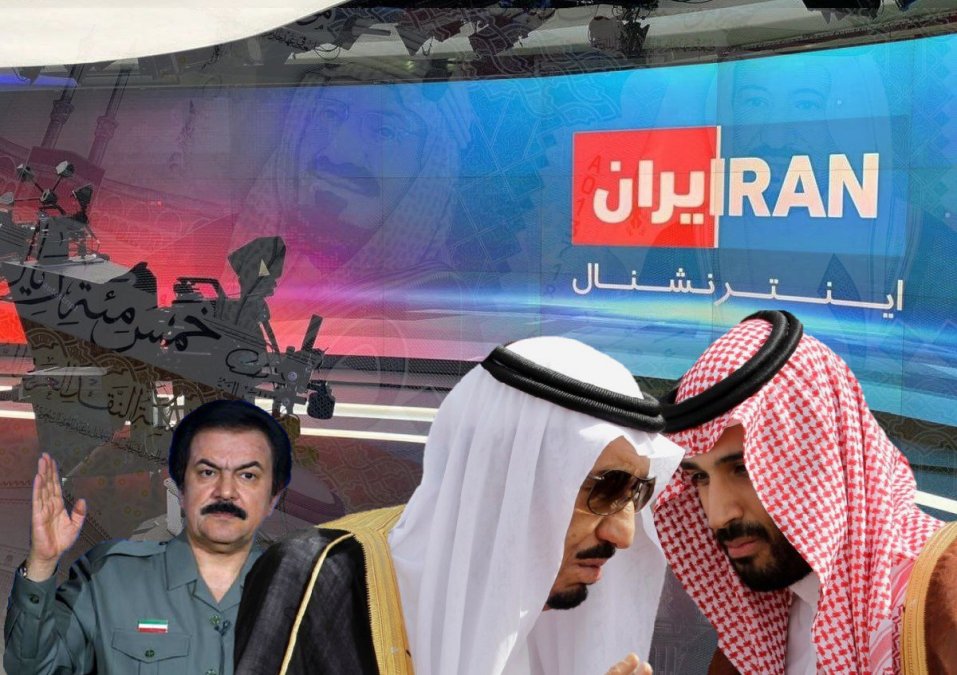Critiquing the Anti-National Performance of the Saudi-Affiliated Television Network
In critiquing the anti-national performance of the Saudi-affiliated television network, according to Iran Gate, the way Iran International TV network has covered news and provided political, social, and economic analyses regarding Iran’s developments in recent years has been questioned by audiences, especially experts.
However, the controversial actions of this media outlet over the past eight months have constantly stirred up controversy because it sometimes broadcasts news related to terrorist groups and at other times clearly takes sides and adopts positions favorable to Iran’s Arab-speaking neighbors. The question is whether this track record belongs to a professional media outlet or if Iran International TV network is beating the drum for a certain individual or movement.
When the track record of the International network is examined, we arrive at one term to describe this media entity, which is the adjective ‘anti-national.’ The issue is not that media should defend the government to avoid the anti-national label; rather, a national media outlet is one that, without considering political relations, moves in a direction to enlighten public opinion without bias.
This action will invariably lead to the maximization of national interests because if people are directly confronted with real data about events and developments, they will react more logically and accurately. Therefore, it is said that a media outlet that conveys distorted news to its audience definitely bears the anti-national label on its forehead. On the other hand, broadcasting news related to the destructive activities of separatist and even terrorist groups is among the examples of activities that violate the national interests of the country, which Iran International TV network has repeatedly committed at various times.
Iran Gate has examined the track record of this television network in a two-part report. The present report is the first part of this series, focusing on International’s background before the protests known as the Woman, Life, Freedom movement.
Radio Riyadh or Iran International
The establishment of Iran International TV network was accompanied by numerous controversies from the very beginning. Revelations and resignations by renowned and reputable journalists like Mohammad Manzarpour regarding the financial sources of this network and also the relations of some of its managers with Saudi princes created a stir.
However, with the start of the protests in November 2019, which were triggered by the increase in gasoline prices, Iran International clearly adopted specific biases that illuminated the scene for professional media audiences. But before International’s role reached its peak in the protests of the past eight months, the network’s orientation during the spring 2021 protests in Khuzestan over the drinking water shortage fully clarified that this media outlet was not going to act as a professional news channel with relative impartiality.
The track record of Iran International network during the mentioned periods led political activists and professional journalists inside and outside the country to dub this television network as Radio Riyadh.
Fueling the Fire for Terrorists and Separatists
As mentioned, the performance of Iran International network is unprecedentedly questioned in the history of Persian-language media both inside and outside the country. However, there are several periods in the years of this network’s activities for which there is no explanation or justification. Among the most significant of these is International’s open and official support for terrorists belonging to the Al-Ahwazi movement in spring 2021 when the Khuzestan water crisis had reached a critical state. This network’s unwavering defense of the red-scarved individuals, a nickname for the Al-Ahwazi terrorists, clearly demonstrated its stance on territorial integrity to the professional audience.
At times, International has also attempted to continue its anti-national activities by whitewashing some bankrupt political movements, with the People’s Mojahedin Organization of Iran being the most prominent among them. This network has had a strong presence at various Rajavi cult events and even sent special correspondents to cover gatherings of a few dozen members and supporters of this organization in Europe. It should not be forgotten that the relationship between Massoud and Maryam Rajavi with the Arab rulers in the region, who compete with each other in anti-Iranian stances, has been dramatic and very close. The peak of this relationship was in Camp Ashraf during the eight-year Iran-Iraq war with Saddam Hussein’s government and the Ba’ath Party.
Now it seems that fate has once again placed the Rajavi cult in the path of the Arabs. The International network has also played the role of a facilitator for this unholy alliance, which has brought detrimental results for Iran’s security and national interests.
In the next part, the destructive role of Iran International network in recent protests and the reason for the relocation of this media entity to the United States and the impacts of the Tehran-Riyadh agreement on the continuation of this television network’s activities will be addressed.
English
View this article in English

